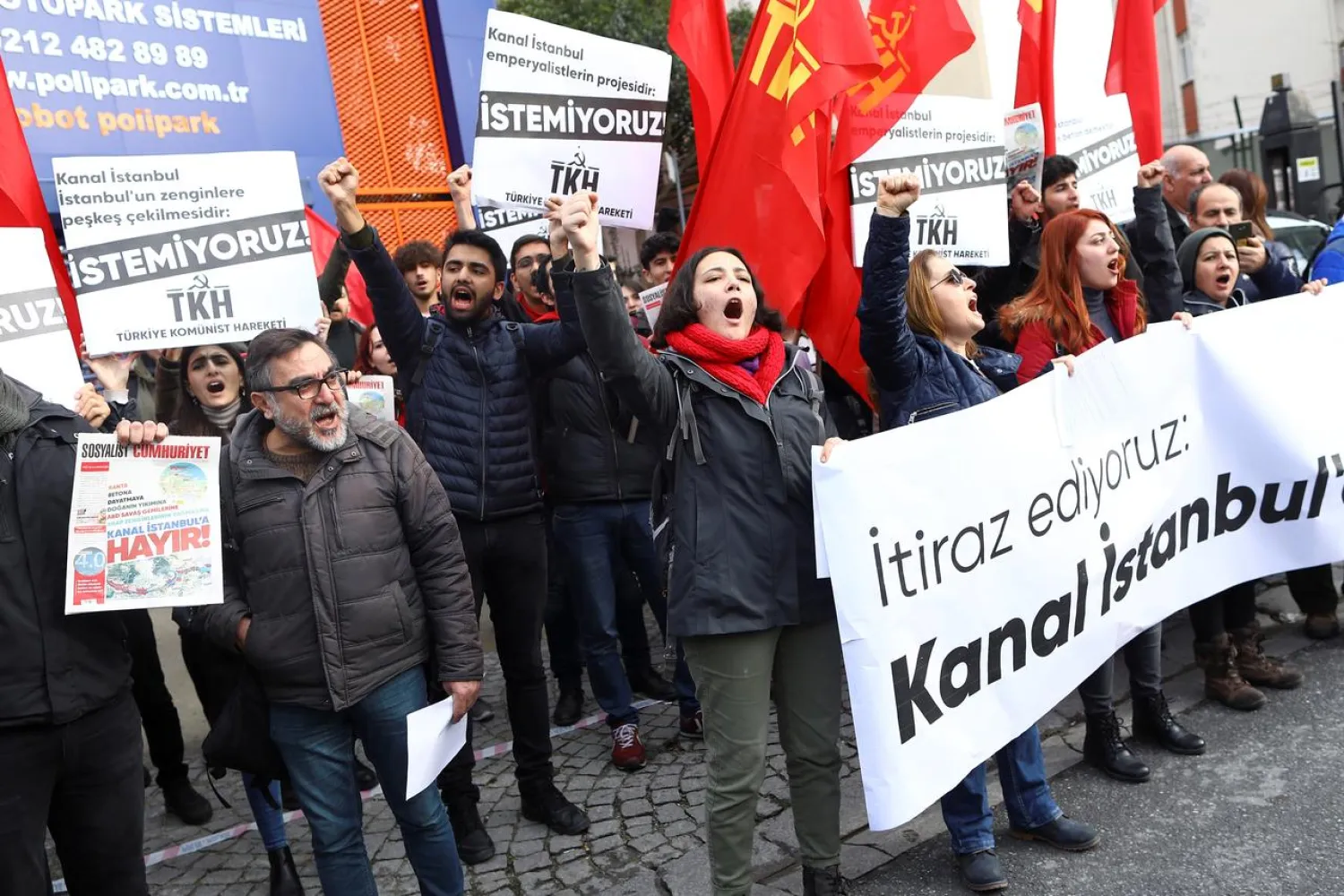President Donald Trump hosted Benjamin Netanyahu at the White House on Wednesday, with the Israeli prime minister expected to press him to widen US talks with Iran to include limits on Tehran's missile arsenal and other security threats beyond its nuclear program.
In his seventh meeting with Trump since the president returned to office nearly 13 months ago, Netanyahu was looking to influence the next round of US discussions with Iran following nuclear negotiations held in Oman last Friday.
Trump has threatened strikes on Iran if no agreement is reached, while Tehran has vowed to retaliate, stoking fears of a wider war. He has repeatedly voiced support for a secure Israel, a longstanding US ally and arch-foe of Iran.
In media interviews on Tuesday, Trump reiterated his warning, saying that while he believes Iran wants a deal, he would do "something very tough" if it refused.
TRUMP SAYS NO TO IRANIAN NUCLEAR WEAPONS, MISSILES
Trump told Fox Business that a good deal with Iran would mean "no nuclear weapons, no missiles," without elaborating. He also told Axios he was considering sending a second aircraft carrier strike group as part of a major US buildup near Iran.
Israel fears that the US might pursue a narrow nuclear deal that does not include restrictions on Iran's ballistic missile program or an end to Iranian support for armed proxies such as Hamas and Hezbollah, according to people familiar with the matter. Israeli officials have urged the US not to trust Iran's promises.
"I will present to the president our perceptions of the principles in the negotiations," Netanyahu told reporters before departing for the US. The two leaders could also discuss potential military action if diplomacy with Iran fails, one source said.
Iran has said it is prepared to discuss curbs on its nuclear program in exchange for lifting sanctions but has ruled out linking the issue to missiles.
Iran’s "missile capabilities are non-negotiable," Ali Shamkhani, an adviser to Iran's supreme leader, said on Wednesday.
Netanyahu's arrival at the White House was lower-key than usual. He entered the building away from the view of reporters and cameras, and a White House official then confirmed he was inside meeting with Trump.
GAZA ON THE AGENDA
Also on the agenda was Gaza, with Trump looking to push ahead with a ceasefire agreement he helped to broker. Progress on his 20-point plan to end the war and rebuild the shattered Palestinian enclave has stalled, with major gaps over steps such as Hamas disarming as Israeli troops withdraw in phases.
Netanyahu's visit, originally scheduled for February 18, was brought forward amid renewed US engagement with Iran. Both sides at last week's Oman meeting said the talks were positive and further talks were expected soon.
US Secretary of State Marco Rubio said ahead of the Oman meeting that negotiations would need to address Iran's missiles, its proxy groups, and its treatment of its own population. Iran said Friday’s talks focused only on nuclear issues.
Trump has been vague about broadening the negotiations. He was quoted as telling Axios on Tuesday that it was a "no-brainer" for any deal to cover Iran's nuclear program, but that he also thought it possible to address its missile stockpiles.
Iran says its nuclear activities are for peaceful purposes, while the US and Israel have accused it of past efforts to develop nuclear weapons.
Last June, the US joined Israel's strikes on Iranian nuclear facilities during a 12-day war.
Israel also heavily damaged Iran's air defenses and missile arsenal. Two Israeli officials say there are signs Iran is working to restore those capabilities.
Trump threatened last month to intervene militarily during a bloody crackdown on anti-government protests in Iran, but ultimately held off.
ISRAEL WARY OF A WEAKENED IRAN REBUILDING
Tehran's regional influence has been weakened by Israel’s June attack, losses suffered by its proxies in Gaza, Lebanon, Yemen and Iraq, and the ousting of its ally, former Syrian President Bashar al-Assad.
But Israel is wary of its adversaries rebuilding after the multi-front war triggered by Hamas' October 2023 assault on southern Israel.
While Trump and Netanyahu have mostly been in sync and the US remains Israel's main arms supplier, Wednesday’s meeting could expose tensions.
Part of Trump's Gaza plan holds out the prospect for eventual Palestinian statehood - which Netanyahu and his coalition, the most far-right in Israel's history, have long resisted.
Netanyahu's security cabinet on Sunday authorized steps that would make it easier for Israeli settlers in the occupied West Bank to buy land while granting Israel broader powers in what the Palestinians see as the heartland of a future state. The decision drew international condemnation.
"I am against annexation," Trump told Axios, reiterating his stance. "We have enough things to think about now."









